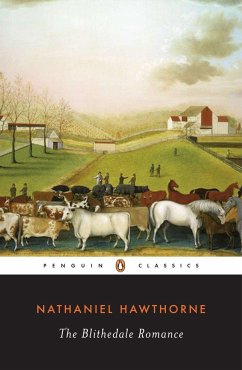A superb depiction of a utopian community that cannot survive the individual passions of its members. In language that is suggestive and often erotic, Nathaniel Hawthorne tells a tale of failed possibilities and multiple personal betrayals as he explores the contrasts between what his characters espouse and what they actually experience in an 'ideal' community. A theme of unrealized sexual possibilities serves as a counterpoint to the other failures at Blithedale: class and sex distinctions are not eradicated, and communal work on the farm proves personally unrewarding and economically disastrous. Based in part on Hawthorne's own experiences at Brook Farm, an experimental socialist community, The Blithedale Romance is especially timely in light of renewed interest in self-sufficient and other cooperative societies.
Hinweis: Dieser Artikel kann nur an eine deutsche Lieferadresse ausgeliefert werden.
Hinweis: Dieser Artikel kann nur an eine deutsche Lieferadresse ausgeliefert werden.








